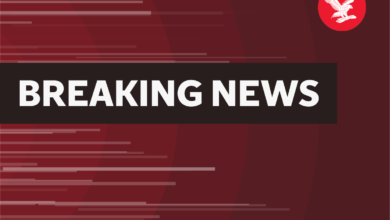UK condemned Rwanda for human rights abuses months before signing deal to send asylum seekers there

Britain condemned Rwanda for failing to investigate human rights violations just months before Boris Johnson agreed to deport thousands of asylum seekers there.
A new multi-million-pound deal will see people seeking sanctuary in the UK flown 4,000 miles away to have their asylum claims processed by the east African country, in what the home secretary branded a “world-leading migration partnership”.
Announcing the plans on Thursday, the prime minister lauded Rwanda as “one of the safest countries in the world”, adding that it is “globally recognised for its record of welcoming and integrating migrants”.
But it has emerged that just 10 months before the agreement was signed, the UK raised alarm about a failure by authorities in Rwanda to properly investigate alleged human rights abuses and to protect and support victims of trafficking.
A statement by the UK’s international ambassador for human rights Rita French in July 2021 expressed “regret” that Rwanda was not conducting “transparent, credible and independent investigations into allegations of human rights violations including deaths in custody and torture”.
She added: “We were disappointed that Rwanda did not support the UK recommendation to screen, identify and provide support to trafficking victims, including those held in government transit centres.”
Britain itself has granted protection to dozens of Rwandans over the past decade, with 69 given asylum or humanitarian protection between 2011 and 2021.
Revealing details of the plans from the Rwandan capital Kigali on Thursday, Priti Patel said the deal would enable deportees who are granted asylum in Rwanda to “build their lives” in the country.
She said the plan, which will see the UK pay Rwanda £120m plus the cost of flights and accommodation, would “help break the people smugglers’ business model and prevent loss of life while ensuring protection for the genuinely vulnerable”.
But experts have said it is “ludicrous” to think that asylum seekers will be able to build their lives in the country, citing human rights abuses and economic issues, and warned that many deportees would likely leave immediately and make their way back to Europe.
Rwanda is already home to more than 127,000 refugees, mainly from Burundi and the Democratic Republic of Congo, most of whom are in refugee camps and are not allowed to work.
A similar migration deal between Rwanda and Israel between 2014 and 2017 is said to have resulted in nearly all of those sent to the African nation leaving the country almost immediately.
Many attempted to return to Europe via people-smuggling routes, such as through Libya, where trafficking and human rights abuses are rife.
Michela Wrong, a British journalist and author of Do Not Disturb, a book about human rights abuses in Rwanda, said: “It has no viable opposition party. The elections are rigged; their democratic system is a sham; there’s a newspaper that spouts out government propaganda.
“There isn’t the land capacity. It’s the country in Africa with the highest population pressure. It’s very densely populated, very small, and there’s a lot of land huger already. The idea that people would settle there and make it their home seems ludicrous.”
Drawing similarities between the UK’s plan and the Israel-Rwandan deal, Ms Wrong said she believed that asylum seekers sent there would “try and leave immediately”, with many embarking on the treacherous journey to Europe again.
“They’ll be caught up with the same trafficking gangs that many of them have already encountered. It’s a delay tactic which will force refugees to cross half of Africa and Europe to get back to the UK,” she said.
One Rwandan refugee in the UK, who was granted asylum in 2018, told The Independent he still lived “in fear” of the Rwandan government after he was allegedly tortured by the authorities for articles he published, and branded the migration deal “shameful”.
The 40-year-old, who did not wish to be named due to concerns for his safety, said: “There’s no freedom of speech. People live in fear. You need to sit quiet. You aren’t allowed to demonstrate; you can’t criticise the government.





